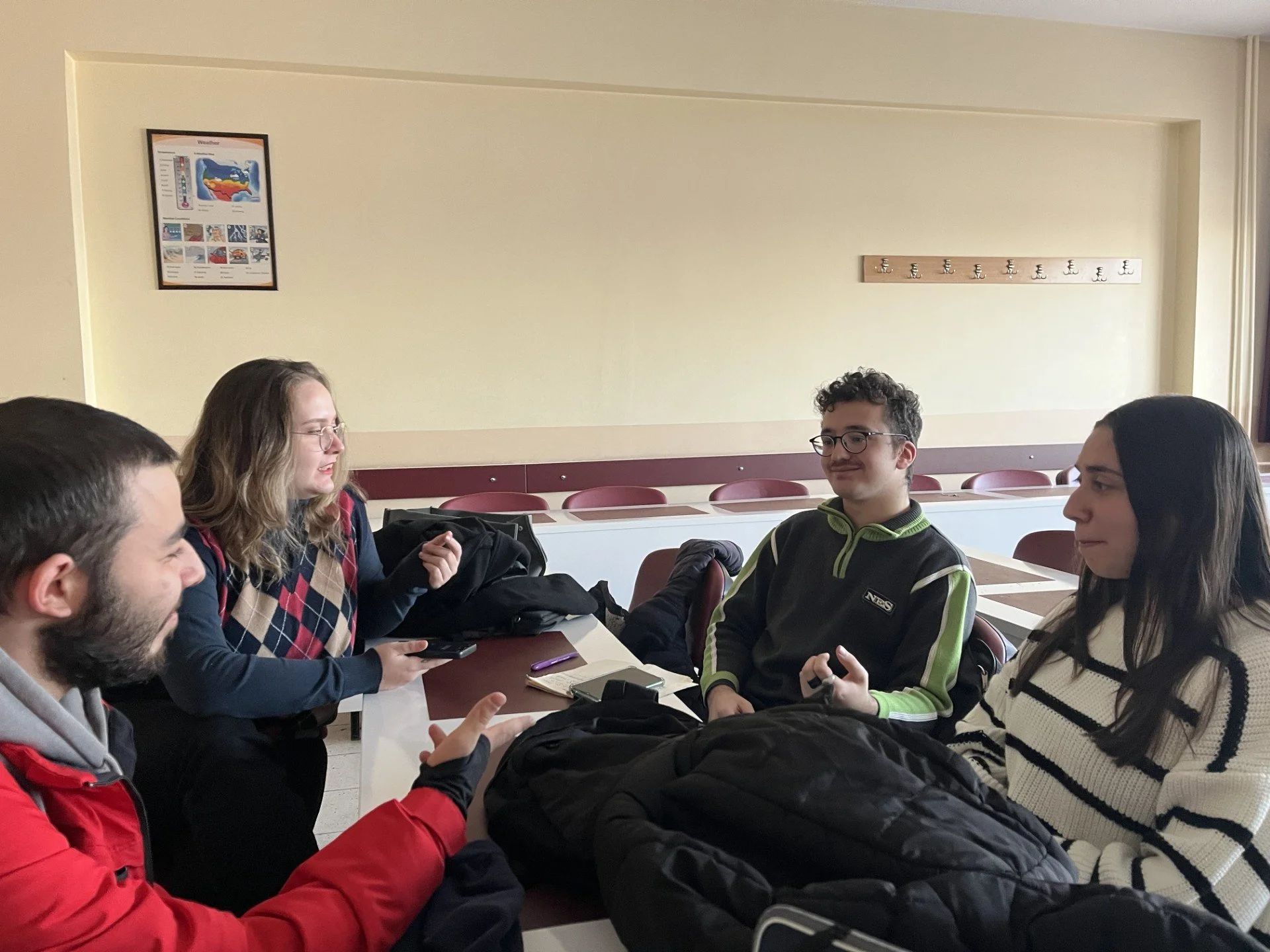Anita Tjan
Atatürk University
Erzurum, Türkiye
About Anita Tjan
My name is Anita Tjan and, in my role as an English Language Fellow (2022-2024), I worked at Atatürk University in Erzurum, Türkiye. I taught English as a Foreign Language to freshmen and department students. I have a Masters in Teaching English to Speakers of Other Languages (TESOL) from the School of International Training (SIT) Graduate Institute in Vermont. The master's degree opened doors for me. I’m originally from Indonesia and we moved to the US when I was a child. Boise, Idaho, is my home base.
I have been in the tertiary teaching context abroad since 2016. I love teaching because it is an opportunity to make a difference. One way that I try to do this is by preparing students for their future, which includes teaching them critical thinking skills.
How did you learn about The Good Project lesson plans? What made you interested in using the lesson plans?
I learned about the Good Project lesson plans after hearing a talk about the Project Zero Thinking Routine “I see-I think-I wonder” in a conference presentation in Ankara. While researching that routine, I came across the Good Project Lesson Plans. The lesson plans appealed to me because they go deeper than memorizing facts. Instead they foster reflection, critical thinking skills and character development. At that time, the Good Project researchers were looking for teachers to participate in their research, so I applied.
Tell us about the students with whom you are teaching the lesson plans. In which class are you using them? What makes them a good fit for your learners?
The students doing the lesson plans are second year Turkish university students who are majoring in Interpretation and Translation. All of them have a passion for learning languages. Some will work as translators and interpreters when they graduate. For example, a few want to work as interpreters for the national soccer teams that have players from other countries. About a third of my students are interested in working as English language teachers.
The Good Project lesson plans are integrated into their weekly two-hour long Advanced Speaking course. The lessons are very relevant because the students need to prepare for the future. In addition, the Good Project lesson plans address topics that affect decision-making, such as values, role models, mission, and roles and responsibilities.
What has been a memorable moment from your teaching of the lesson plans?
The impact of the class on the students are heard in the comments from those who said they never had any class like this and who said the class will help them with making decisions. The one student selected to represent Atatürk University as a participant in the research method’s focus group said that it was one of the highlights of her life as a student.
From the lesson plans, they are learning that good work is more than excellent work or good grades, and they are learning strategies for decision making.
What do you think other teachers should know before they begin teaching the lesson plans?
I suggest that teachers inform the students in the beginning that The Good Project Lesson Plans are different from other courses. The lessons aren’t about memorizing facts and there are no right or wrong answers. Most questions and discussions are about their individual experiences and perspectives.
What are students learning that you feel will stick with them? What changes, if any, do you see in the way they approach certain choices or situations in school or in life?
I believe what will stick with the students are the three elements of good work (excellence, engagement, and ethics). This is because we talked about these concepts and referred to them frequently. One effect on the students is that some will make decisions differently, for example, by first considering what their values are.
How do you view the relationship between what you teach in the classroom and your students’ overall development as people?
I see a direct connection between what I teach and my students’ development as people. I saw this reflected in the answers of students who were willing to take a risk to express their thoughts and feelings. For example, some students wrote insightfully on how their roles and responsibilities are deeply connected to the high value they place on their family.
Why is it important for your learners to understand the meaning of “good work” for themselves, now and in the future?
Two reasons came to mind on the importance of learners understanding what “good work” is, as defined by the Good Project research.
First, they make decisions every day which affect the quality of their work, the “excellence” of good work. And they will have decisions to make as they look for work and face the question - “Do I carry out this job for financial stability or for personal fulfillment?”
Second, by knowing what “good work” means, my students have a compass to guide them when they face decisions related to the 3 E’s of “good work”, excellence, ethics and engagement. For example, in the future, they may face a dilemma where a friend, a manager, or even themselves, suggests a certain action is necessary for success, but that action is unethical and not aligned with their values.
I hope that the concepts and activities that they learned will guide them to doing “good work.”






